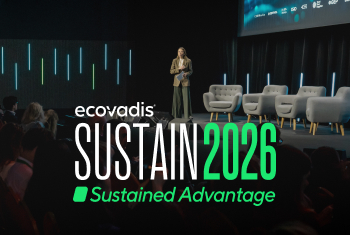Read summarized version with:
The European Union’s push for simplification under the so-called Omnibus I package has hit a political inflection point. The compromise text put forward by the Legal Affairs Committee (JURI) was narrowly rejected by the European Parliament, sending the entire proposal back for a full vote on November 13.
What does this mean for the Corporate Sustainability Reporting Directive (CSRD) and the Corporate Sustainability Due Diligence Directive (CSDDD) – the cornerstones of the EU’s sustainability framework?
The Road to Rejection
What initially began as an effort to reduce the administrative burden has evolved into a profound debate about the very future and ambition of European sustainability regulation. The rejection, driven by concerns that the compromise went either too far in weakening the rules or not far enough in other areas, significantly increases volatility and uncertainty over the final legislative outcome.
The European Commission proposed the Omnibus package in February as part of its simplification agenda to boost the EU’s competitiveness and reduce compliance burdens on companies, especially SMEs.
By early summer, the Council of the EU had expressed support for the stop-the-clock mechanism but introduced changes to the scope. Specifically, the Council pushed to raise the threshold for the CSDDD to cover companies with 5,000 employees (up from the 1,000-employee initial proposal) and changed a turnover threshold for the CSRD. Within the European Parliament, lawmakers had been sharply divided on how the EU sustainability rules should apply. Left-leaning parties pushed for smaller cuts to the regulations, while the far-right countered that the CSRD and CSDDD should be abandoned altogether.
The compromise text significantly raised the thresholds for the CSRD (to 1,000 employees and €450 million in revenue) and the CSDDD (to 5,000 employees and €1.5 billion in revenue). When this text reached the plenary in October, opponents successfully argued that it was a step backward in transparency and accountability, leading to another round of negotiations in November.
A Test for the EU
With the European Parliament’s negotiating position now rejected, the immediate concern is that the final trilogue negotiations will be delayed, making a timely deal before the end of 2025 unlikely. This delay is more than a procedural setback; it’s a test of the EU’s ability to link competitiveness with accountability.
The political volatility of the Omnibus package is a signal to embrace a stable, resilient strategy now. Rather than waiting and risking delays in due diligence efforts, the core opportunity remains clear: strengthened corporate resilience. Complying with the CSRD and CSDDD mandates helps companies better understand and manage their supply chains. Focus on establishing a standardized, evidence-based due diligence process that provides auditable data and trackable improvement actions. By treating compliance as a strategic foundation rather than a burden, you move past political risk to build the transparent, high-performing supply chain your stakeholders – and the law – will ultimately require.
 ChatGPT
ChatGPT  Gemini
Gemini  Perplexity
Perplexity  Claude
Claude  Grok
Grok 
